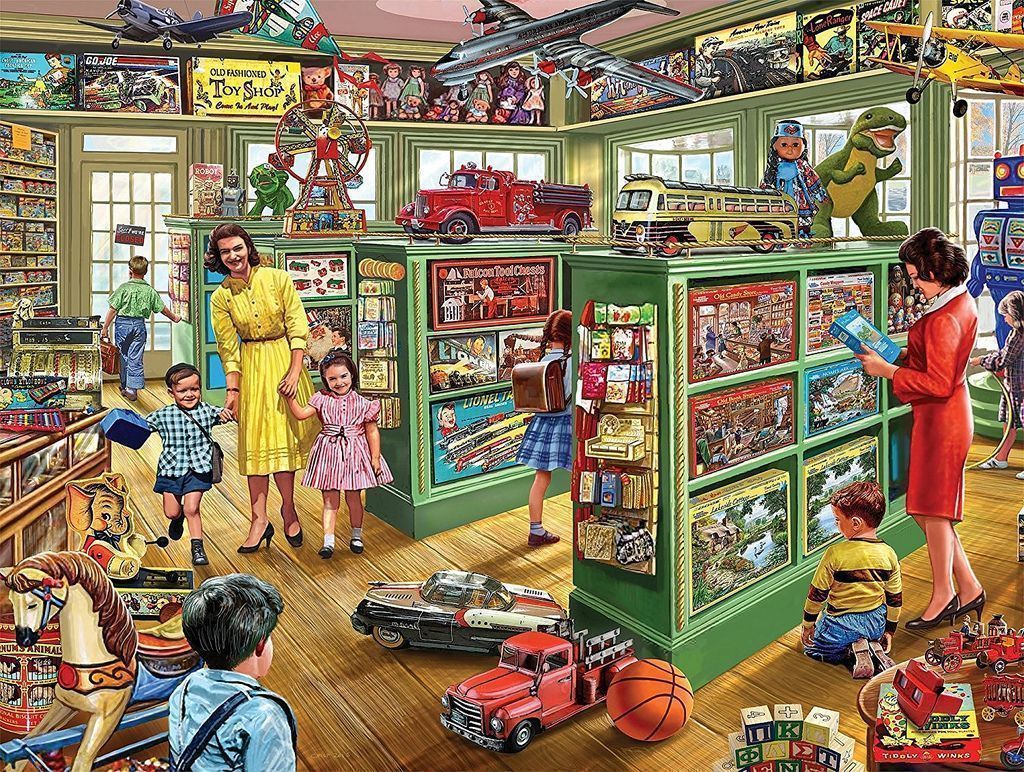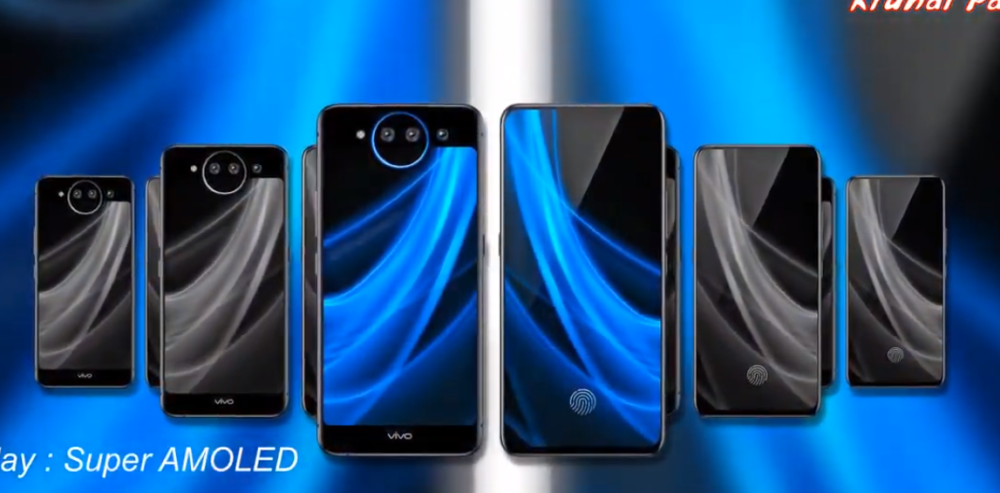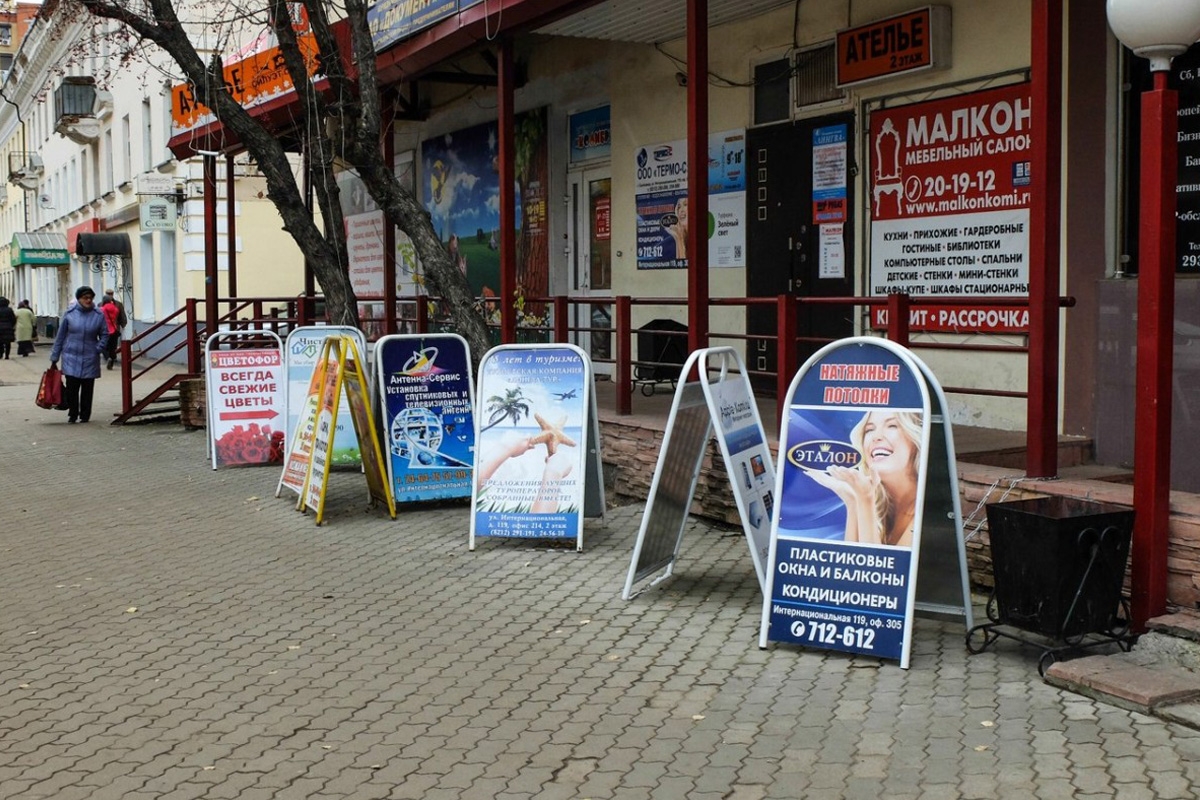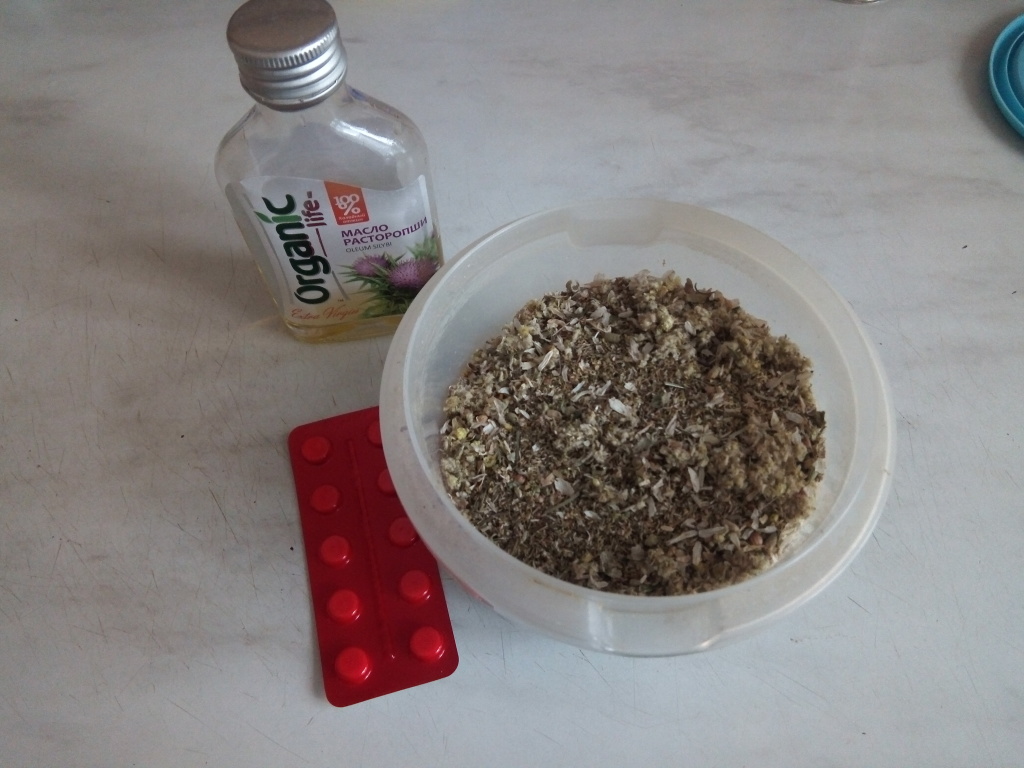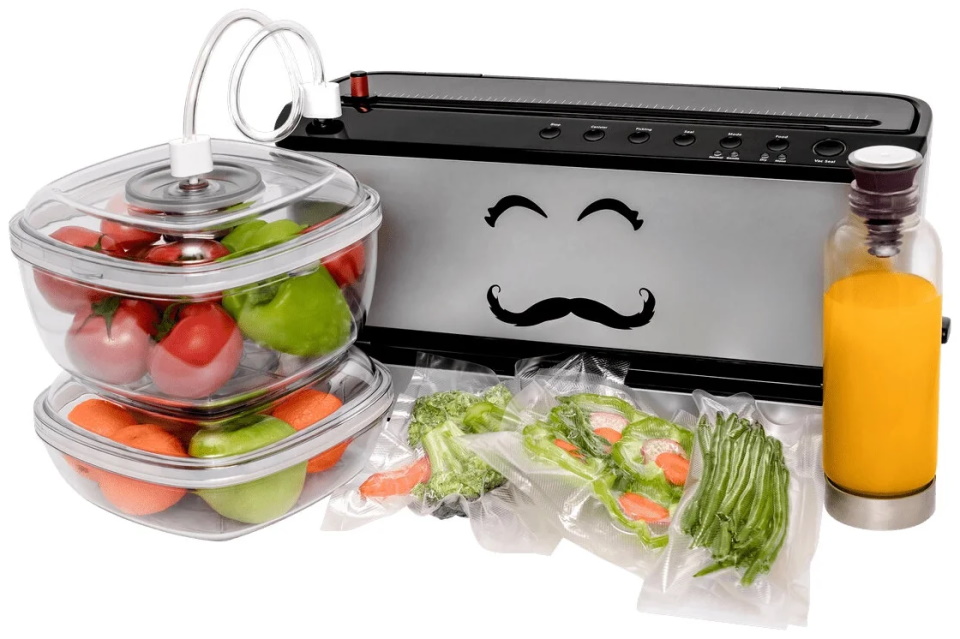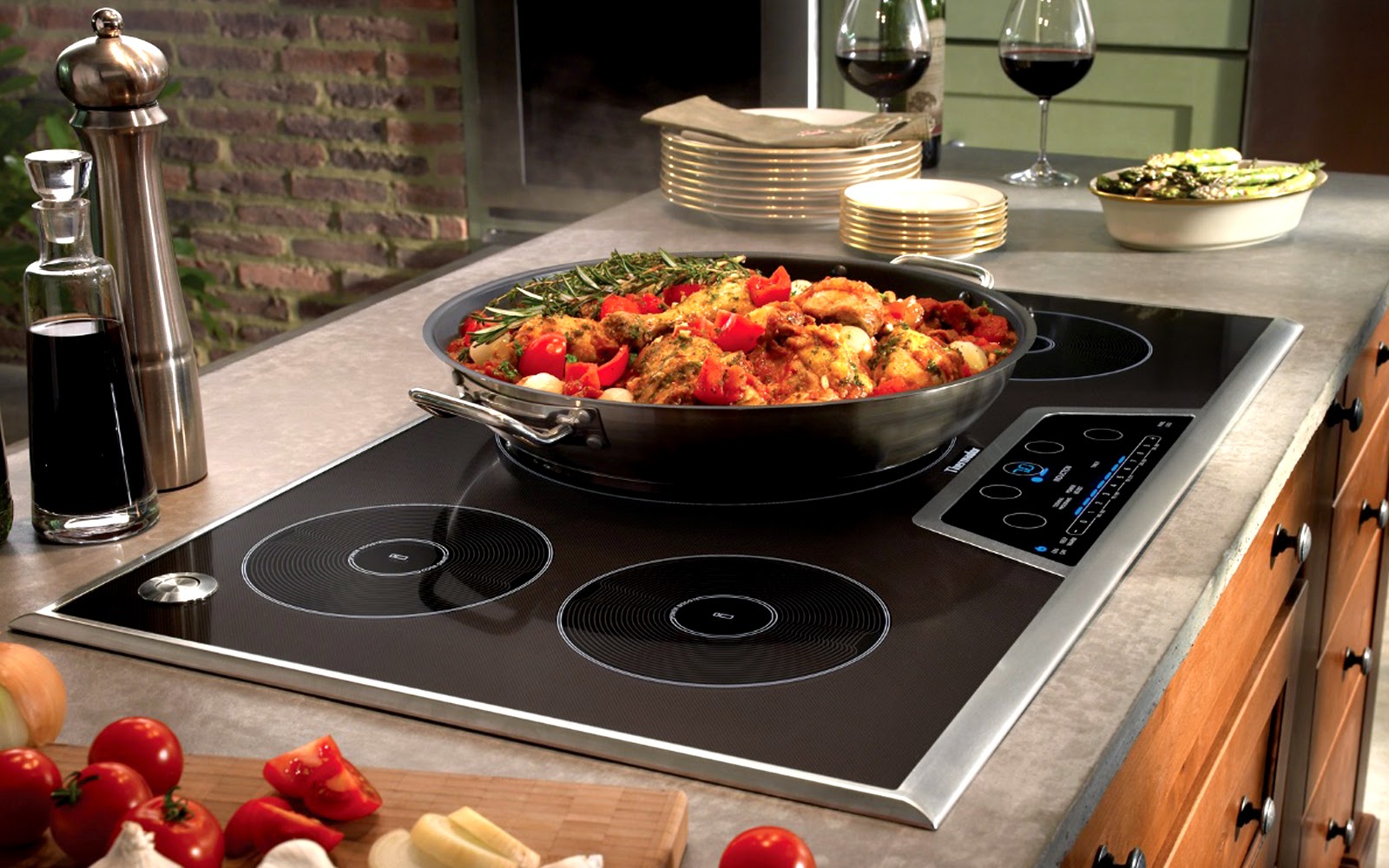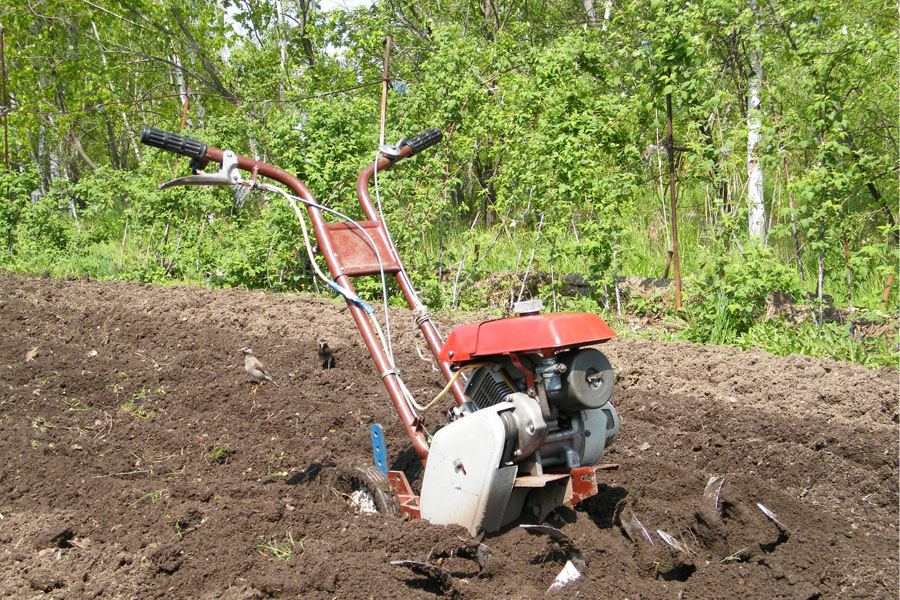Rating of the best alkyd primers for 2025

Alkyd primers are rightfully classified as universal primer samples. With this material it is possible to process any object, whether it is made of concrete, metal or wood. After applying such a substance, the surface acquires a stable and durable layer that can adequately withstand external negative influences. In addition, alkyd compounds fill porous substrates very well, which means less consumption of paint applied on top.
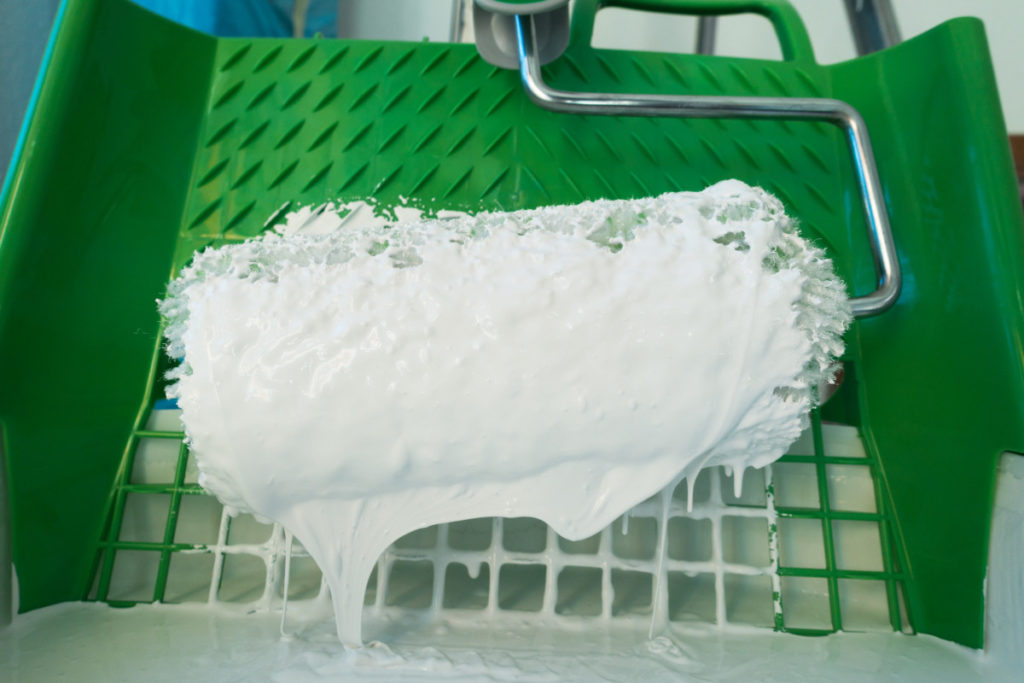
Content [Hide]
Alkyd primers - general information
They can be used on bases of various types and sizes. For example, they will equally well protect the external metal structures in the walls of structures from corrosion, and provide reliable protection for the surface of a wooden piece of furniture from moisture penetration. Most professionals prefer to use alkyd primers in conjunction with a paint made from the same base, as it is easier to achieve the desired interaction between coatings.
Synthetic polymers included in the structure of the material under consideration are able to reliably fill all the pores in porous surfaces, which will only increase the degree of protection given to the object of processing. Alkyd primer can be easily combined with most modern finishing materials, such as glue, paint or putty. Even such exotic combinations are possible, such as applying liquid wallpaper to a primed wooden surface, and the latter will not affect the already formed protective layer in any way. Together they will give the wood a long service life, while creating a high degree of adhesion between their layers and making the new coating completely inseparable.
The type of soil under consideration can be applied in one or more layers, which will depend on the substrate being treated. For example, for wood, it is recommended to apply at least a couple of layers, but for concrete, one, but thick layer is enough. As it cures, the alkyds will form a protective film. Best of all, this type of primer works with “its own” (i.e. homogeneous) finishing compositions based on alkyd resins:
- Impregnations;
- Paints;
- Nitro paints;
- Adhesives such as PVA;
- Putties.
IMPORTANT! It is highly not recommended to treat various objects with a crumbling surface with the considered soils (for example, plaster or gypsum).
Composition and technical characteristics
Alkyd primer is made on the basis of resins, which resemble pentaphthalic / glyptal coatings. Such synthetics, unlike paints, do not have only film-forming additives and do not have substances that would increase the density, displacing air from the created protective layer. It should be noted that alkyd substances are not as pure in composition as pentaphthalic (glyphthalic) coatings. Alkyds in their original form have a pronounced dirty color. To eliminate this visual effect, special gray, dark brown or black pigments are added to the composition during production, which make the overall shade of the primer visually acceptable and uniform, however, reduce the surface tension force of the protective film formed, making it somewhat watery. Also, the solvent for the synthetic base has a large amount of volatile substances than is contained in a similar paint.
However, a slightly more liquid consistency allows the soil to easily penetrate into the smallest pores of the object being treated. And if its composition is additionally supplied with drying oils of vegetable origin, then the working mass will easily adhere even to a vertical wall, despite the fact that it will be contaminated with cement dust. A high level of adhesion for untreated substrates is one of the main advantages of alkyd formulations over other similar materials.
Among the main technical functionality of alkyd primers it is possible to include:
- Increased moisture resistance;
- Extreme resistance to temperature extremes (working limits from -40 to +60 degrees Celsius);
- Reducing the volume of consumption in relation to the application of subsequent finishing materials;
- Increase in the degree of abrasion;
- Possibility of interaction with aggressive chemicals (not with any);
- Overcoming the accelerated process of shrinkage and swelling (for wood);
- Protection against the release of its own natural resin through already treated areas (for wood).
Modern types of primers
The compositions under consideration can well be called the successors of classical oil paints, only the former have more polymeric starting elements. This similarity provides a fairly acceptable drying rate, proper UV tolerance and resistance to mechanical stress. Alkyd-based primers can be produced in various modifications, which will differ in purpose (object of application) and in a set of technical parameters.
- woody
It contains special additives that protect the soft base when it is exposed to various negative effects.The main purpose is to prepare the wooden base for finishing with the finishing layer of the decorating composition, while stabilizing it with antiseptics, reducing the risk of fungus and mold, as well as eliminating other harmful biological threats. The applied primer coat, when properly applied and properly dried, will give the wood excellent adhesive qualities, which will equally help good adhesion of the top coat or putty. It is for wood that it is better to use specialized alkyd primers that are able to penetrate deeply into a soft (compared to stone / concrete / metal) structure, reliably filling the pores.
- Anti-corrosion (metal)
The second name of this type was given by the need to protect metal structures from negative consequences in contact with water. The resulting rust will easily spoil the applied finish, and if the metal was too light, then it will easily acquire a reddish tint in spots. Accordingly, a well-applied composition will stably cut off the metal from moisture, in any of its manifestations - condensate, precipitation, leakage. In the structure of such compounds, zinc phosphate is responsible for the protective properties. And when the primed surface is also coated with alkyd varnish, a characteristic rough thin layer will be formed, which will even make re-painting possible. Anti-corrosion agents are more often available in the form of aerosols, although liquid variations are not uncommon.
- Universal
In this composition, almost the entire range of possible protective properties was embodied, but in a certain amount. Universal look suitable for any type of construction.The active ingredient is zinc chromate, which is responsible for the resistance to sunlight, the proper degree of strength, the stability of the film wrap. Use both for internal, and for external works is possible. A striking representative of this family of compositions is the GF-021 sample.
- Alkyd-urethane
The composition is a proportional mixture of resins of the same name, which is diluted with various functional additives. It is more often used for processing metal and wooden objects that are supposed to be operated in difficult conditions. It is recommended to protect the walls of industrial and residential buildings, auxiliary facilities in production. It can safely tolerate low temperatures down to -45 degrees Celsius. Excellent compatibility with latex, acrylic and nitrocellulose materials, PVA adhesives. Poor contact with gypsum and plaster (i.e., any crumbling bases are prohibited).
- glyptal
In it, alkyd resin is mixed with glycerin elements. A tinting pigment is usually added to such mixtures in order to give the entire working mass a uniform shade. This factor should be taken into account when choosing a finish, as too dark a color can shine through the top finishing layer. Glyptal samples are characterized by a good degree of versatility, they are used for both outdoor and indoor work, they are perfectly applied to both wood and iron.
- Perchlorovinyl
Such compositions are a synthesis of a pigment suspension with alkyd resins (including various additional elements). The final substance has a pungent synthetic odor, therefore, it is more suitable for external processing. They are allowed to work on brick, concrete, metal and wooden objects.Traditionally, perchlorovinyl samples have an anti-corrosion modifier included in the structure, which makes the preliminary preparation of metal bases optional. Thus, it is possible to reduce the time spent on priming large-scale iron structures, tanks, excavator buckets, etc. It is characterized by relatively fast drying - the primary stage is completed within 60 minutes at a temperature of +20 degrees Celsius. Technically resistant to interaction with chemically aggressive compounds.
IMPORTANT! The performance of work using this composition should be carried out exclusively using personal protective equipment (gloves and a respirator).
- Alkyd-acrylic
This working mass is the most successful combination of the most common finishing resins. The applied composition easily penetrates very deeply into almost any surface, which makes it a leader among primers - deep penetration primers. It will become the only and indispensable tool when working with crumbling and loose substrates (plaster and gypsum). It can perfectly bond and reinforce the basic structure of an object, increase its overall strength. At the same time, the substance itself already has the appropriate anti-corrosion properties, which allows it to be used on unprepared iron structures. The main advantage is the complete absence of unpleasant and pungent odors, which is achieved due to the aqueous suspension in the composition. Hardening is also fast - 60 minutes at a temperature of +20 degrees Celsius.
Advantages and disadvantages
The undoubted positive qualities of the considered protective substance include:
- Increased strength of the created layer;
- Abrasion resistance (upon completion of full curing);
- With sufficient tinting - the creation of a completely opaque layer;
- The ability to adhere well to the vast majority of finishes;
- Ability to work with a large number of heterogeneous types of bases (up to previously painted ones);
- Composition, which in most cases is characterized by low toxicity (with the exception of perchlorovinyl samples);
- A fairly easy process of removing an already hardened layer with white spirit.
Of the obvious disadvantages can be noted:
- Not too fast polymerization period - from 60 minutes only the primary stage;
- Incompatibility with some types of coatings (weak adhesion of the surface finish);
- Most samples cannot process a loose and crumbling surface (an exception is alkyd-acrylic);
- The impossibility of working with a tiled mesh based on a synthetic construction bandage - involuntary stretching of the mesh base may occur;
- The need for immediate cleaning of the working tool (roller or brush) immediately after the end of the work, otherwise the pile on them will stick together and the tool will become completely unusable.
Selection and application of certain types of alkyd primers
Before buying a specific type of protective mass in question, you should rely on its specific purpose:
- Glyphthalic - suitable for outdoor and indoor use, usually contains a coloring pigment. Recommended for glass, metal, wood and concrete structures. It is allowed to finish the hardened layer with almost any kind of paint or enamel.Highly specialized substances of this group are especially recommended for working on iron objects, since they contain enhanced anti-corrosion additives, which at the same time increase water resistance.
- Perchlorovinyl - the best option for working on external walls made of concrete interspersed with metal (reinforcing reinforcement). Strictly prohibited for internal processing. They have a relatively short drying period;
- Polystyrene is another good outdoor option that has increased strength, but is quite toxic. Specially oriented to work with wooden bases that are constantly in the open air;
- Alkyd-urethane is a truly strong sample that can be used not only for large-scale construction work. The best option for minor repairs, because it is often produced in the form of an aerosol. It is characterized by high moisture resistance.
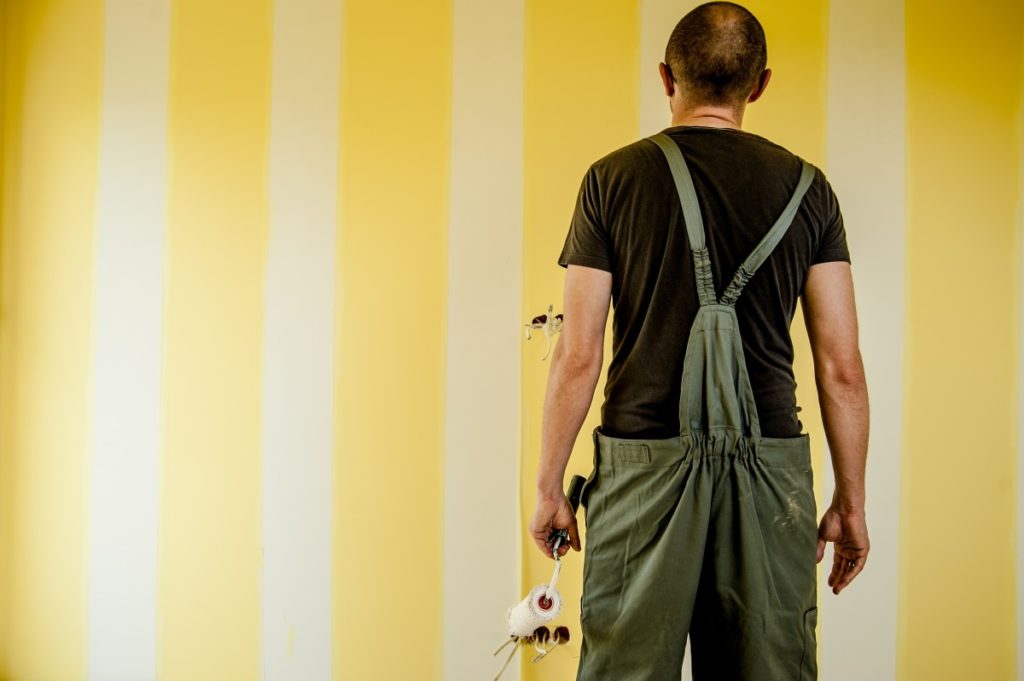
Application technology features
The technology itself is not characterized by any difficulties in application and does not require extensive experience:
- Traditionally, alkyd primers are produced ready-to-use. If the working composition is not designated as “not requiring preparation”, then it is advisable to clean the surface to be processed from rust, dust and immediately degrease it.
- It is preferable to carry out all work with gloves, and in some cases a respirator is required (handling perchlorovinyl materials).
- Before applying the composition to the brush / roller, it is better to stir it and achieve a uniform consistency. If this cannot be achieved by simple mixing, then solvent, xylene or white spirit must be added to the mass, obtaining a viscosity of 21-24 Stokes.
- Direct application is carried out by uniform translational movements in one or two layers, regardless of whether a sprayer or a roller / brush is used.
- It is always worth remembering that the initial drying time for most specimens is 60 minutes and the final drying time is 1 day.
Rating of the best alkyd primers for 2025
Budget segment
3rd place: "VIXEN universal aerosol, gray 520 ml"
votes 0
High-quality product with high adhesion, weather resistance and good hiding power. Easily applied to hard to reach places. Contains a complex of anticorrosive pigments and additives. Forms a durable coating on the surface that protects metal surfaces from corrosion, is perfectly polished, resistant to water and technical oils. It is intended for preparation for painting metal and wooden objects with all types of paints and varnishes, except for nitrocellulose. It is applied to external and internal works. The recommended cost for retail chains is 270 rubles.
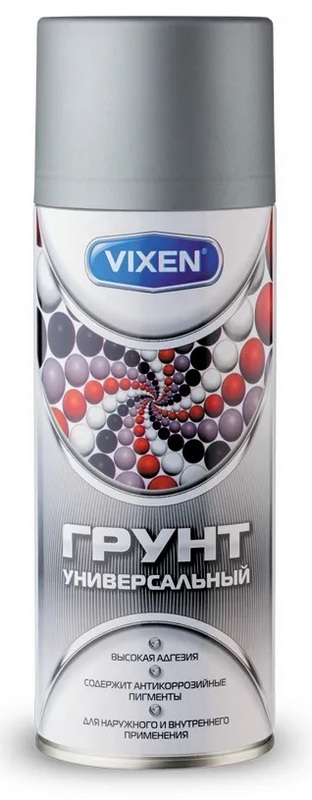
- Orientation for small repairs;
- Ease of processing hard-to-reach places;
- Excellent hiding power.
- Not detected.
2nd place: "KUDO universal, aerosol, 520 ml, white"
votes 0
The sample is intended for painting metal and wooden bases with all types of paints and varnishes. Possesses high adhesion, weather resistance and good hiding power. It is easily applied to hard-to-reach places, forms a durable coating on the painted surface. Suitable for metal, wood, plaster, ceramics, concrete.To preserve the texture on the tree, it is recommended to use a transparent matt NC varnish KU-9009 as a primer. The recommended cost for retail chains is 280 rubles.
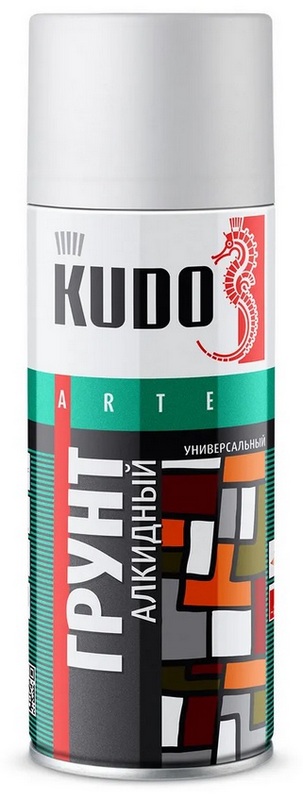
- Increases adhesion and durability of the coating;
- Reduces consumption of finishing paints;
- Conceals minor imperfections.
- Small volume.
1st place: "GF-021 OLECOLOR for wood and metal"
votes 0
The substance is intended for priming metal and wooden surfaces before painting with various enamels. Reduces finish coat consumption by up to 20%. Creates barrier protection against corrosion. Do not apply under adverse weather conditions. It has good adhesion to the surface to be primed and is easy to sand. After drying, it forms a smooth uniform layer without craters, pores and wrinkles (slight shagreen is possible). The recommended price for retail chains is 410 rubles.
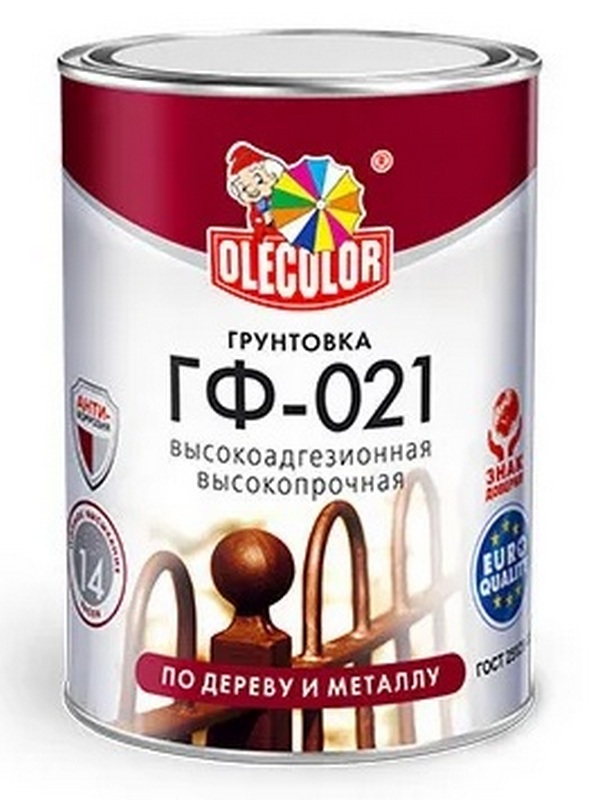
- Average time of final drying;
- Ease of application;
- Formation of a smooth layer.
- After application, a slight smell of synthetics will be present for some time.
Middle price segment
3rd place: "BY RUST" 3in1 PaintGuard Black - 1l / 1kg"
votes 0
This enamel is used to restore the appearance of metal structures, as well as to combat rust. Three functions are contained in one product (conversion of corrosion products, primer with anti-corrosion properties, decorative enamel). It can be used for indoor and outdoor use, reliably protects against corrosion, is resistant to ultraviolet radiation and temperature extremes. It has a sufficient level of water resistance and oil and petrol resistance.Objects of application - metal, cast iron, aluminum, brick, concrete, wood. The recommended cost for retail chains is 550 rubles.
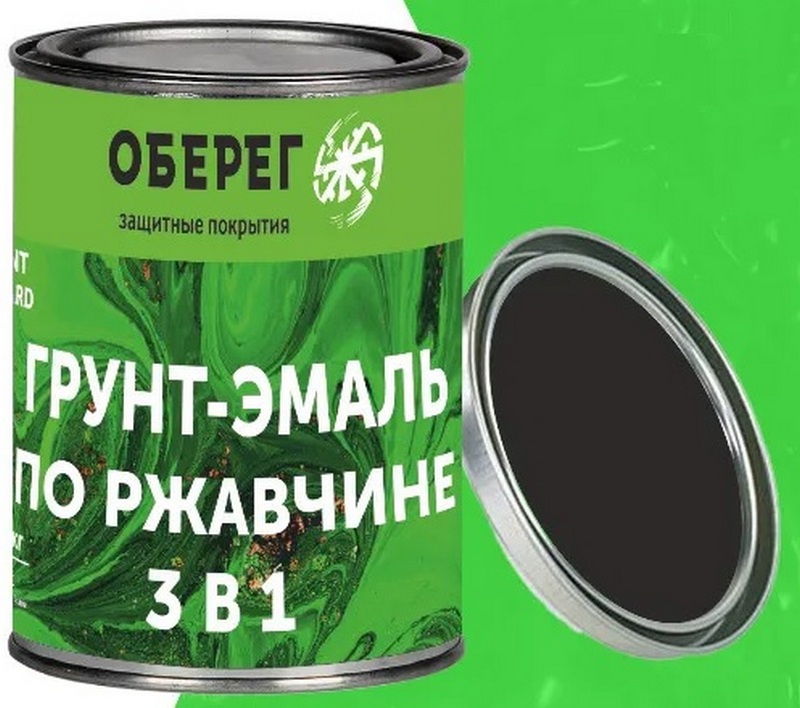
- High adhesion;
- Dries quickly (3-6 hours);
- Large palette of colors: yellow, black, red, red-brown, green, blue, gray, white.
- Not detected.
2nd place: Primer-enamel "Rasvet" chocolate, 3 in 1, rust converter"
votes 0
The product combines the properties of three products - rust converter, primer and enamel. It reliably protects metal structures from corrosion and performs the functions of a decorative coating, while the painting process requires less time and effort due to the reduction of preparatory steps. It is used for painting surfaces operated indoors and outdoors: metal, both clean and rusty or partially corroded with residues of scale and tightly adhering rust with a thickness of up to 0.1 mm. Also suitable for painting wooden and mineral surfaces. Dries quickly, saves time by reducing the work steps during application. It contains a mixture of anti-corrosion pigments, which stops the development of corrosion on the metal. It has excellent adhesion to metal, does not require the mandatory use of another primer. The recommended cost for retail chains is 1220 rubles.

- Long service life;
- Economic consumption;
- The degree of gloss is glossy.
- Not detected.
1st place: "Pinotex Baseс" colorless 1 l"
votes 0
This highly effective wood-protective substance penetrates deep into the wood structure, prevents fungal infections and rot, and ensures high adhesion of top coats to the surface. A colorless, highly effective mass recommended for processing before applying Pinotex finishing impregnations of the following brands: Classic, Ultra, Natural, Wood Oil, Terrace Oil. Penetrates into deep layers, effectively building protection against mold, blue. Pinotex Base, in a system with AWB technology in finishing impregnations, together provide a double active surface protection. Not recommended for residential use. The recommended cost for retail chains is 1340 rubles.

- Possibility of application with a spray gun;
- Focus on subsequent work with well-known brands of coatings;
- Excellent biological protection.
- Not detected.
Premium class
3rd place: "Otex TIKKURILA 0.9 l white (base AR)"
votes 0
This sample is specifically designed for problematic surfaces. It dries quickly and provides strong adhesion even on surfaces such as glass, tiles, fiberglass, plastic, aluminum and galvanized steel. It has good adhesion to surfaces painted with alkyd or acid curing paint. Suitable as an intermediate material. It is applied to the internal bases from which especially good adhesion is required. Ideal for protecting exterior window sashes previously painted with acid-curing or polyurethane-based paint. The AP base can be used as a white paint or tinting element. The recommended cost for retail chains is 1850 rubles.

- A product from a high-quality and well-known brand;
- Possibility of intermediate use;
- Adequate price.
- At first, there is a slight smell of synthetics.
2nd place: "FINNTELLA ANTICORR Anti-corrosion 1.05 kg"
votes 0
This quick drying anti-corrosion compound is modified with polyurethanes. Contains an active anticorrosive component. It is used for preliminary priming and self-painting of galvanized, aluminum and steel surfaces indoors and outdoors. The recommended cost for retail chains is 3375 rubles.

- Variability of application (spray gun or roller / brush);
- Excellent protective qualities;
- Practical versatility.
- Not detected.
1st place: "Zinsser Cover-Stain Oil-Base Prime, 3.78 l"
votes 0
This highly opaque, thixotropic modified working mass is versatile and will serve as an excellent solution for preparing new surfaces for painting. Good coverage of tannin stains, blocks the release of stains on the paint film of the top decorative coatings. Suitable for pre-priming before painting with water-based paints (minimizes the risk of cracking and deformation of any glued wooden surfaces, such as plywood, wooden furniture fronts and more). It is possible to quickly repair and restore structures damaged by fire or water. The recommended cost for retail chains is 5390 rubles.

- Increased hiding power;
- Excellent adhesion;
- Fast drying - 1 hour.
- Too high price.
Conclusion
Alkyd primer has a high degree of resistance to environmental influences. These compounds are used to coat surfaces that need special protection from moisture. After complete drying, the protective layer can be covered with various paints, but similar samples are more recommended - alkyd.
new entries
Categories
Useful
Popular Articles
-

Top ranking of the best and cheapest scooters up to 50cc in 2025
Views: 131650 -

Rating of the best soundproofing materials for an apartment in 2025
Views: 127689 -

Rating of cheap analogues of expensive medicines for flu and colds for 2025
Views: 124518 -

The best men's sneakers in 2025
Views: 124032 -

The Best Complex Vitamins in 2025
Views: 121939 -

Top ranking of the best smartwatches 2025 - price-quality ratio
Views: 114979 -

The best paint for gray hair - top rating 2025
Views: 113394 -

Ranking of the best wood paints for interior work in 2025
Views: 110318 -

Rating of the best spinning reels in 2025
Views: 105328 -

Ranking of the best sex dolls for men for 2025
Views: 104365 -

Ranking of the best action cameras from China in 2025
Views: 102215 -

The most effective calcium preparations for adults and children in 2025
Views: 102011
